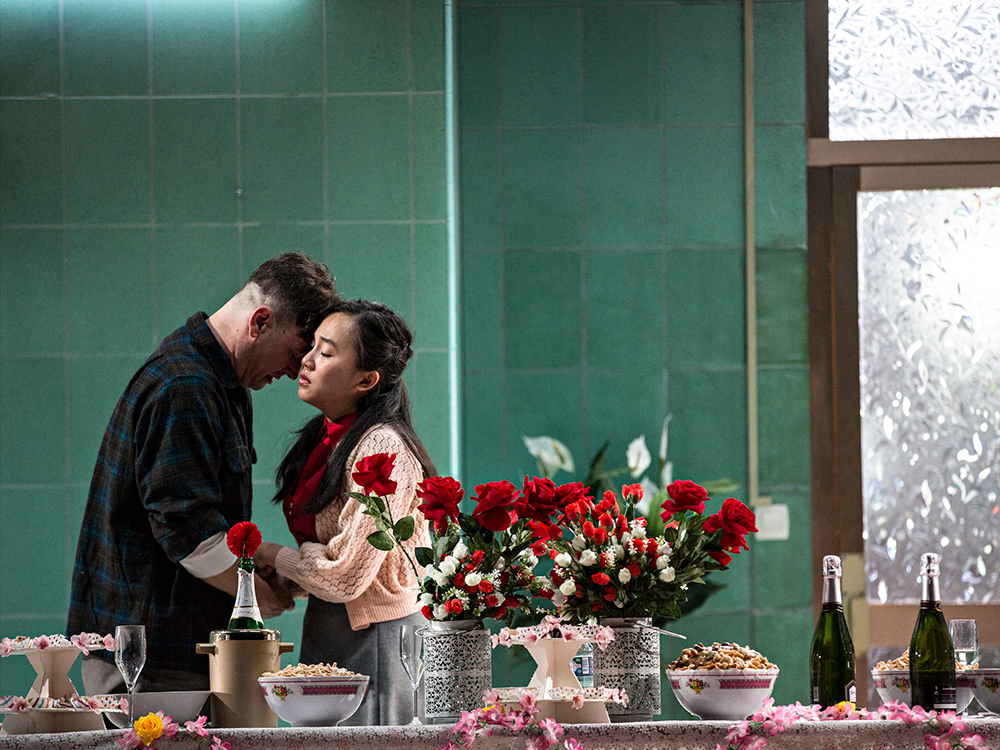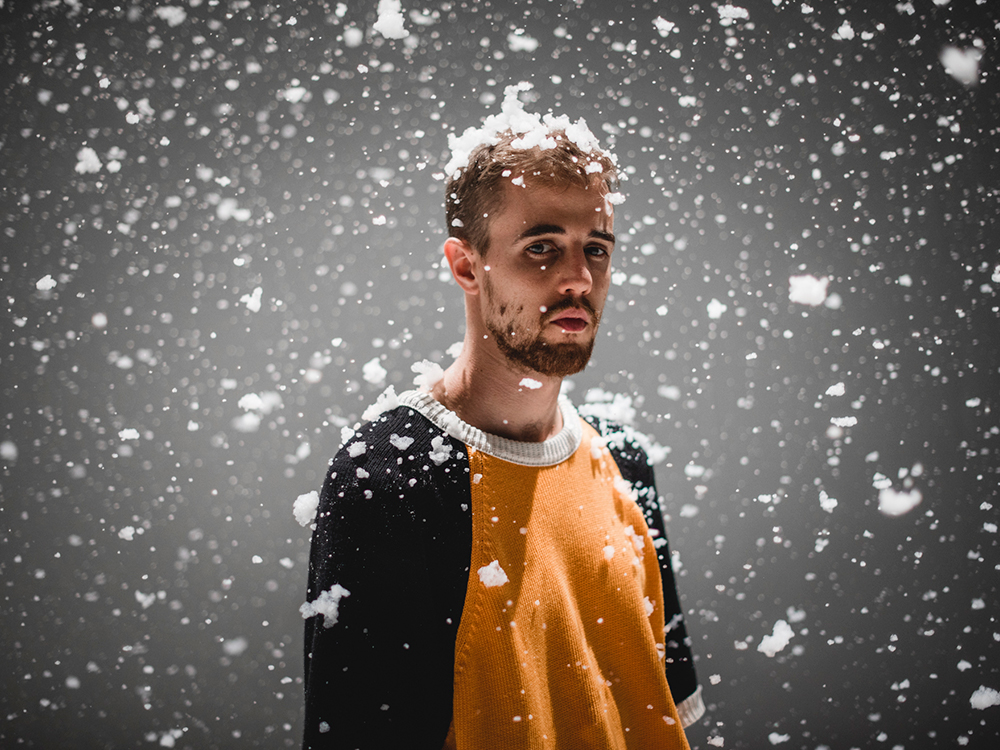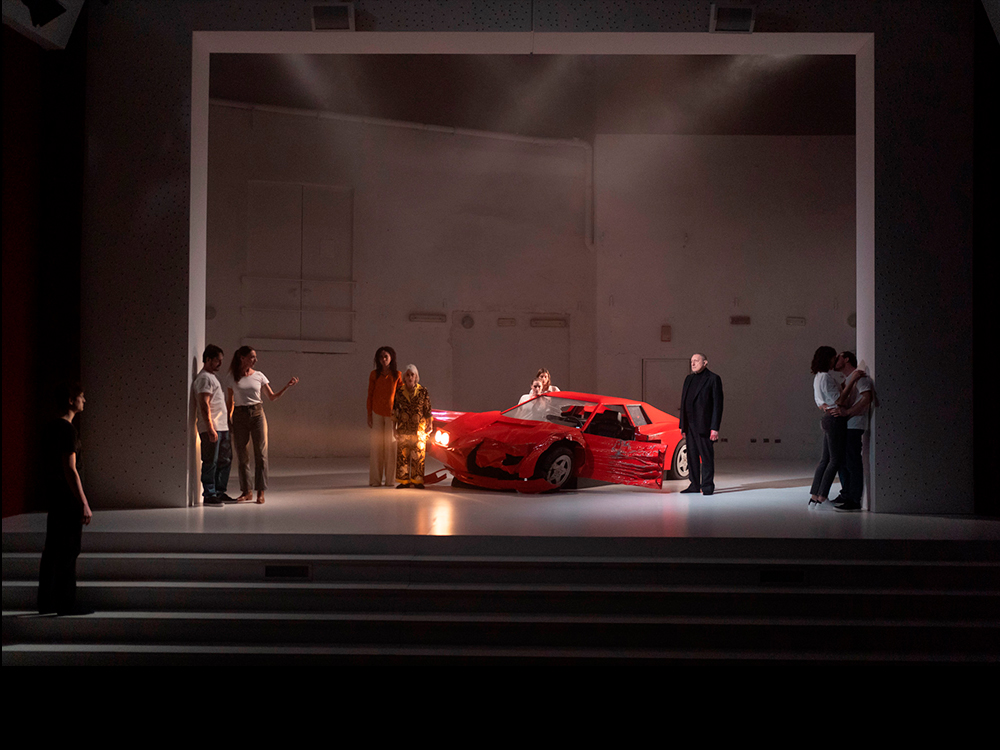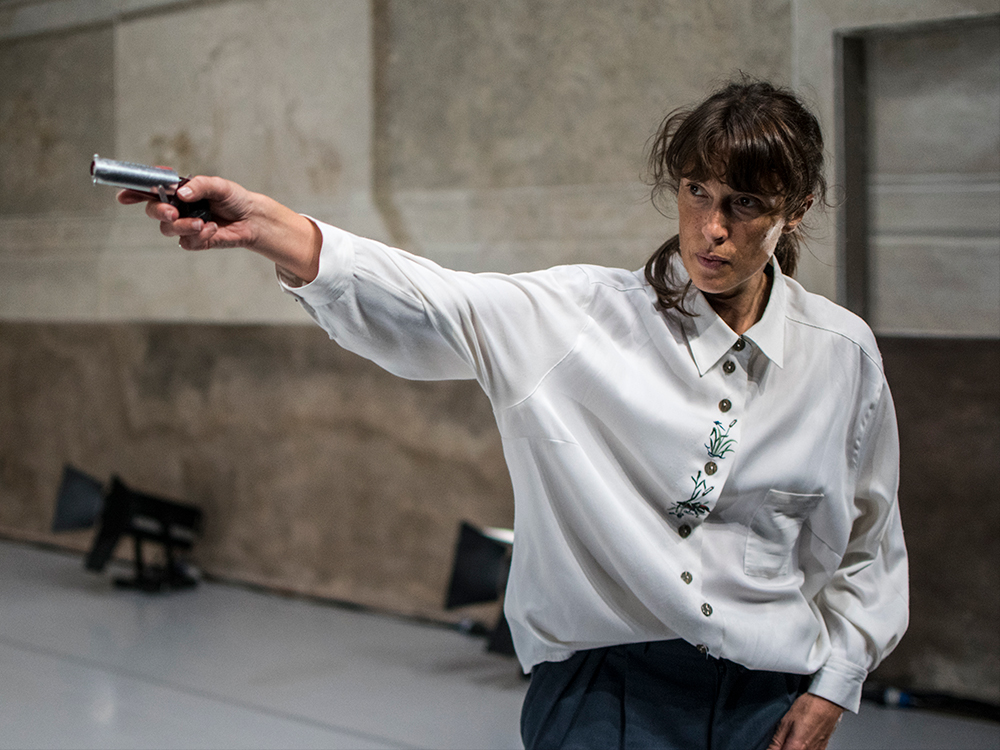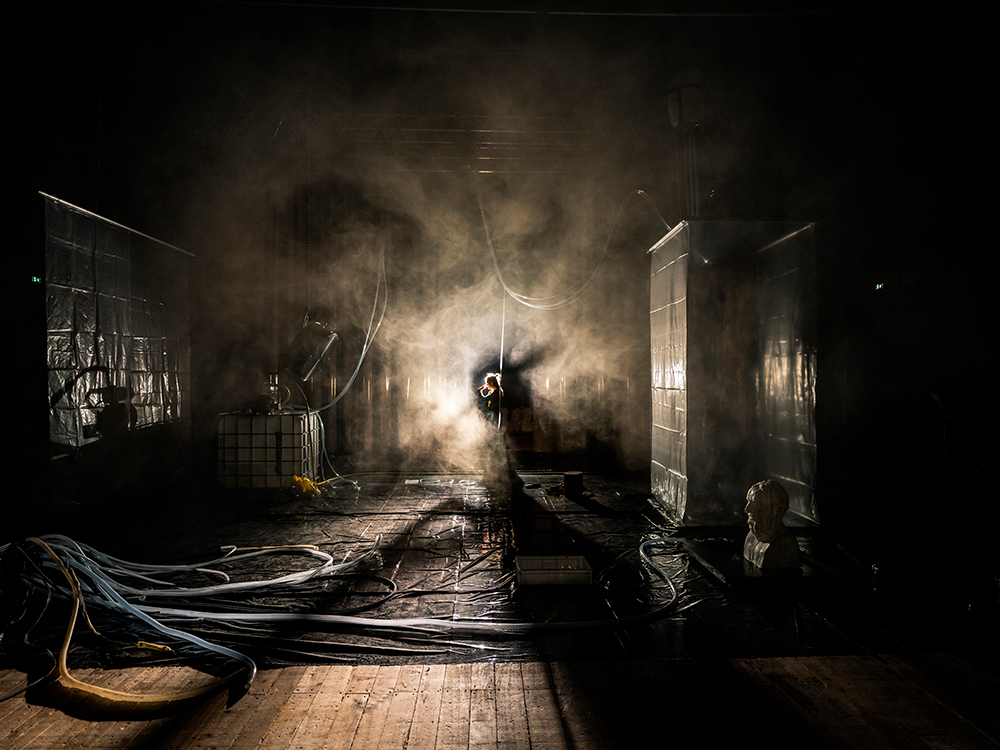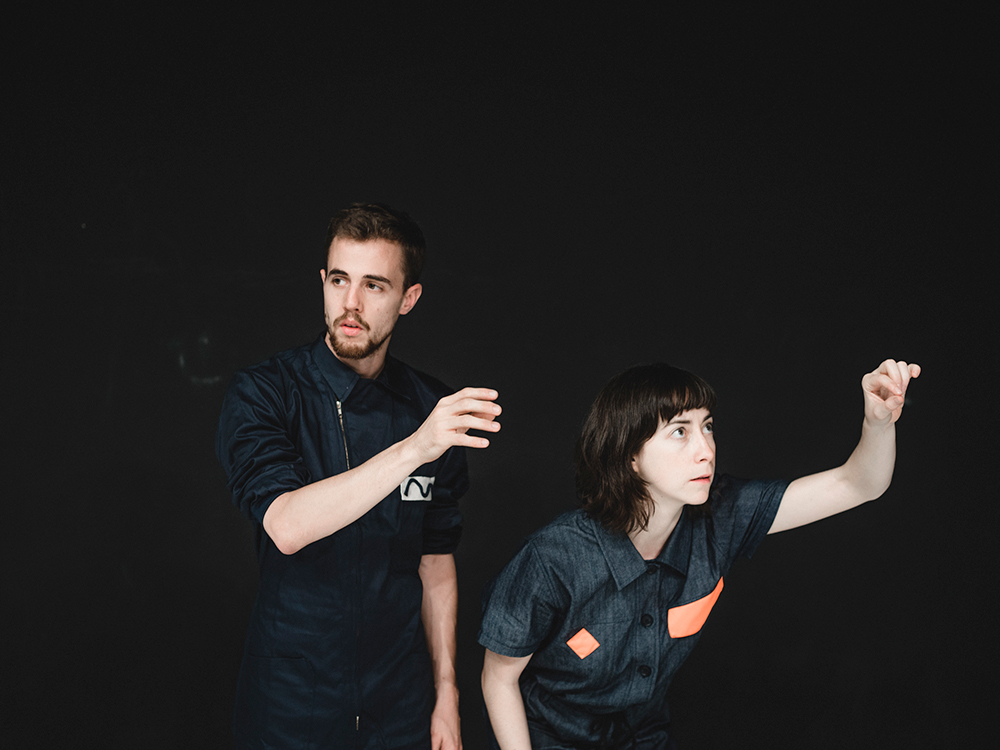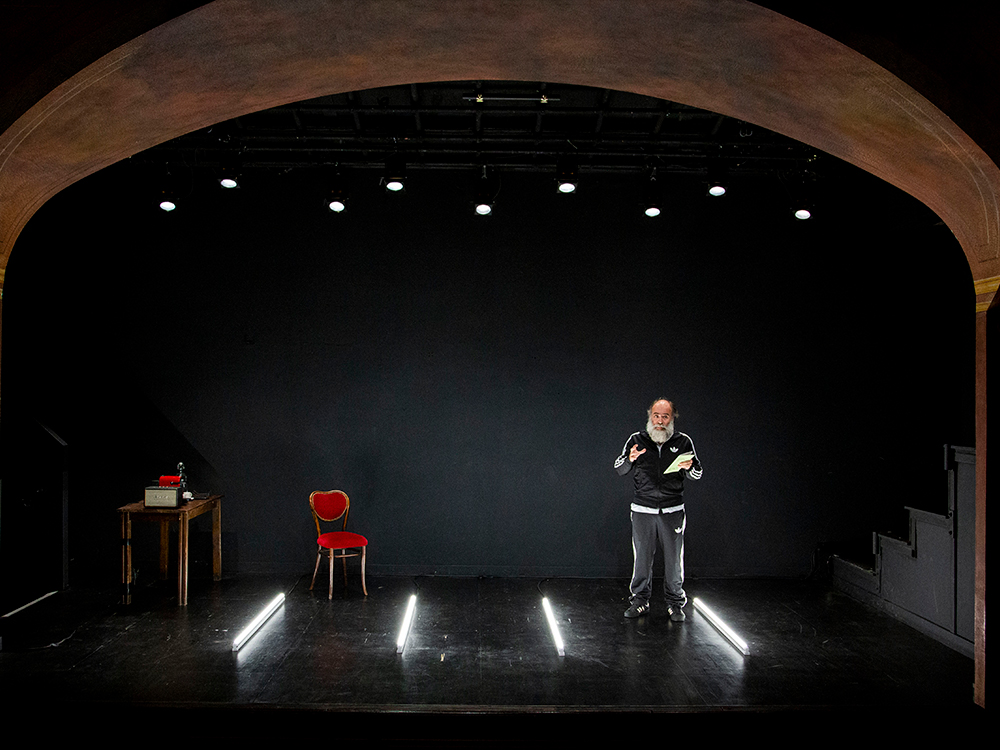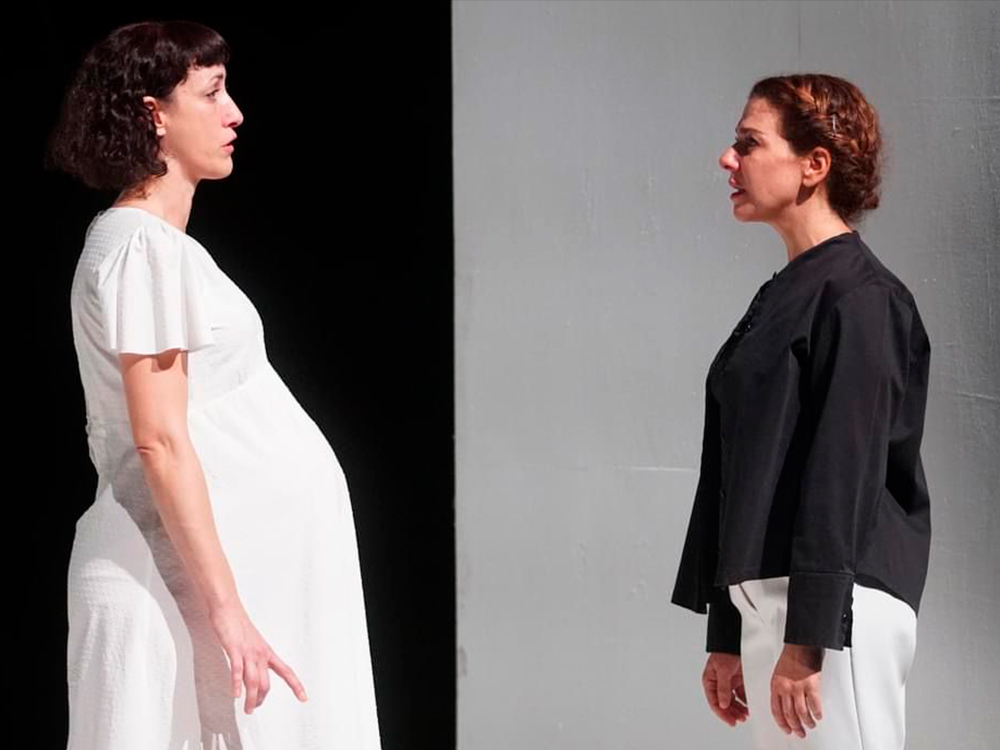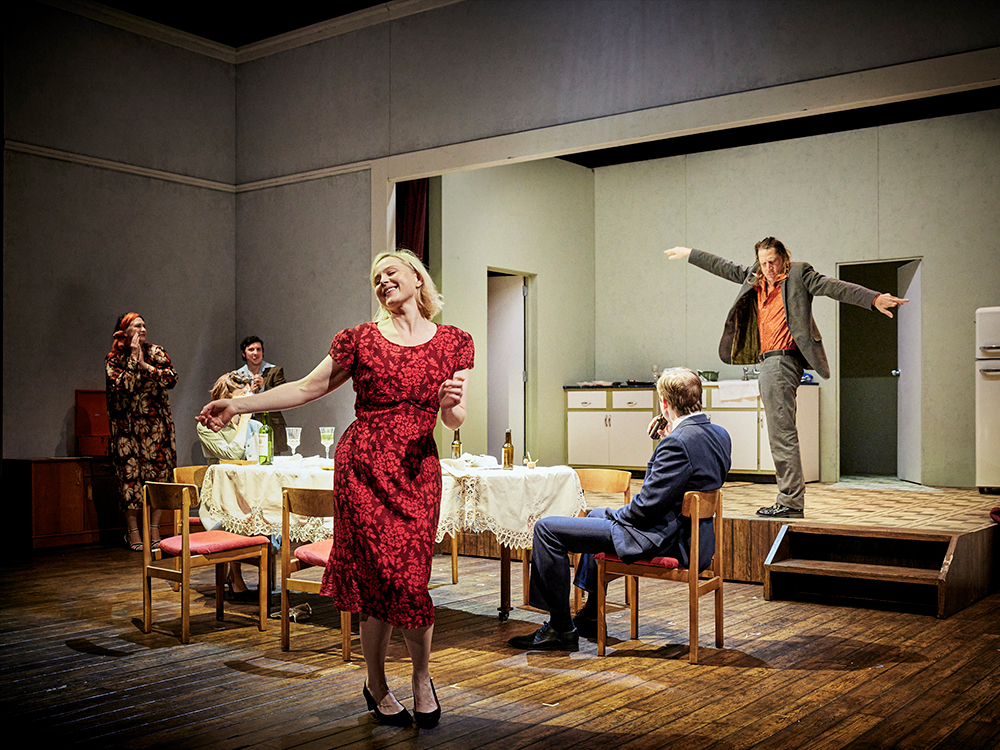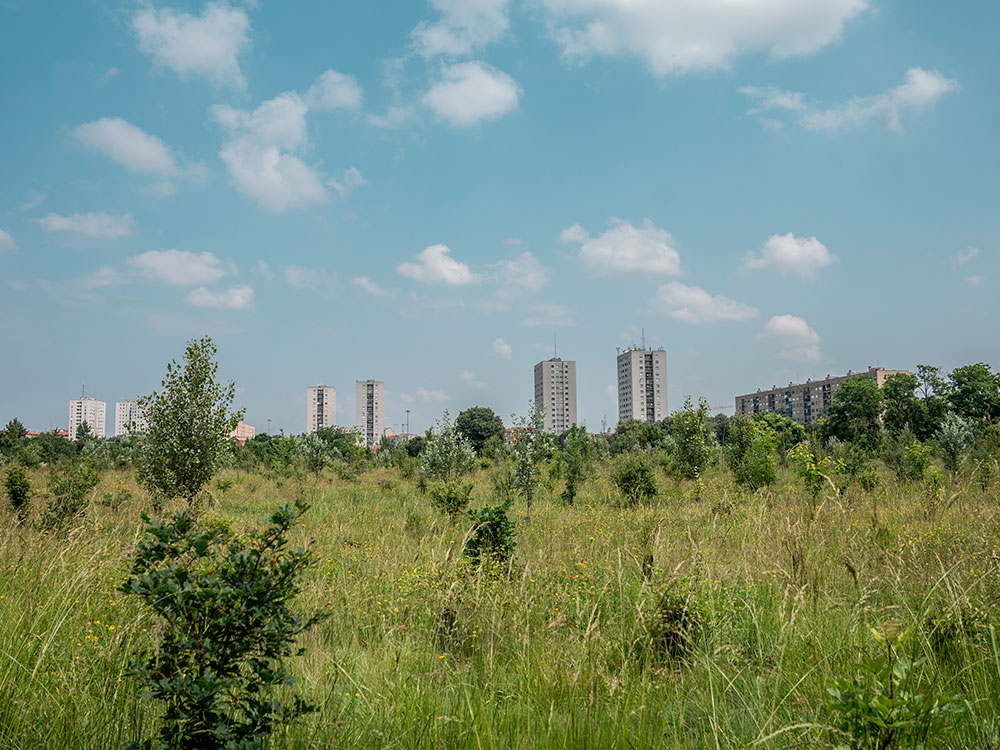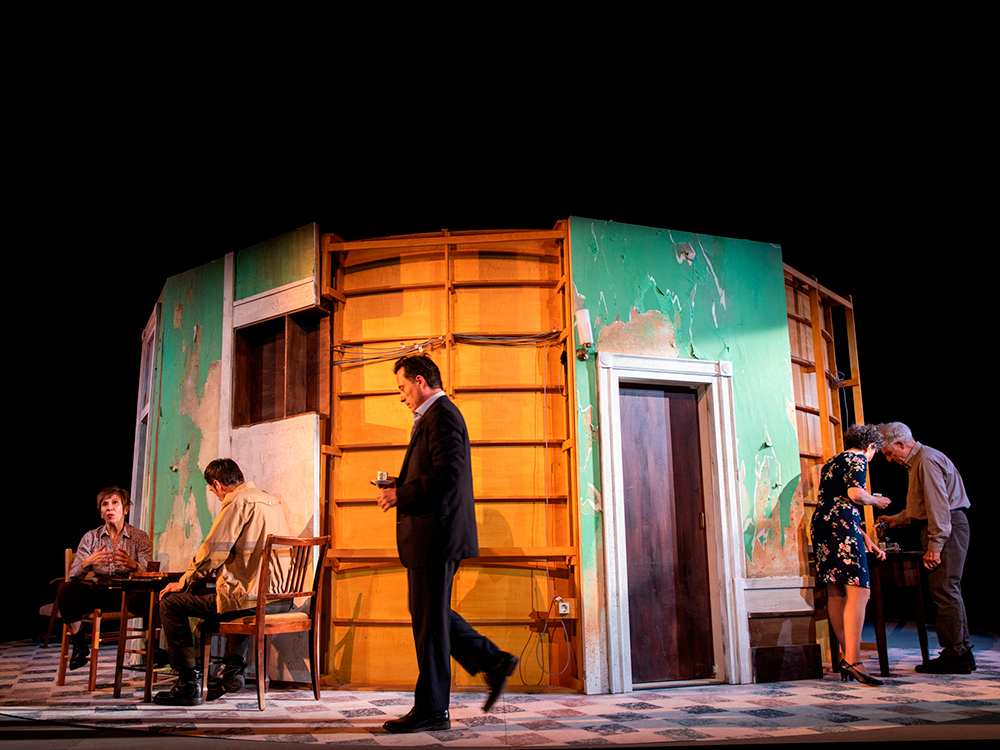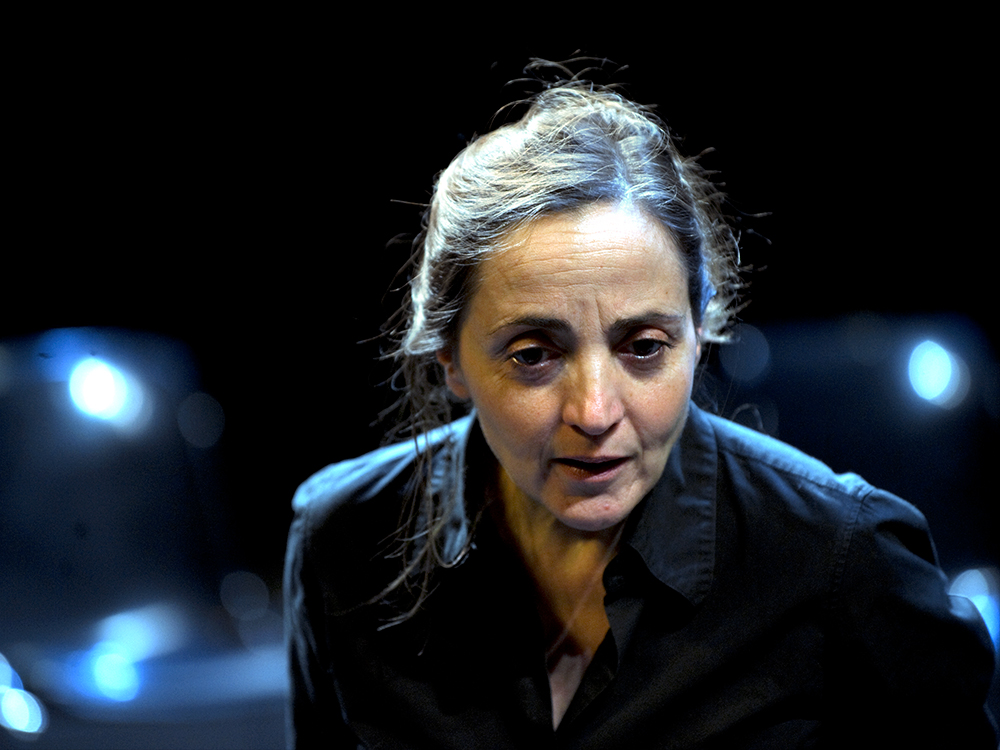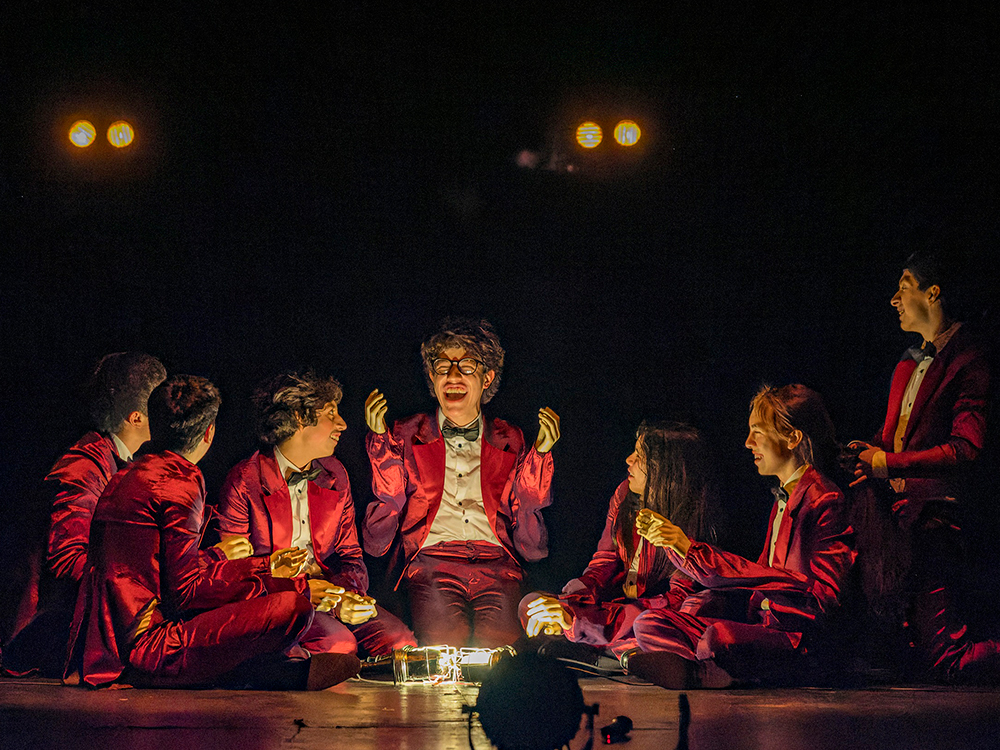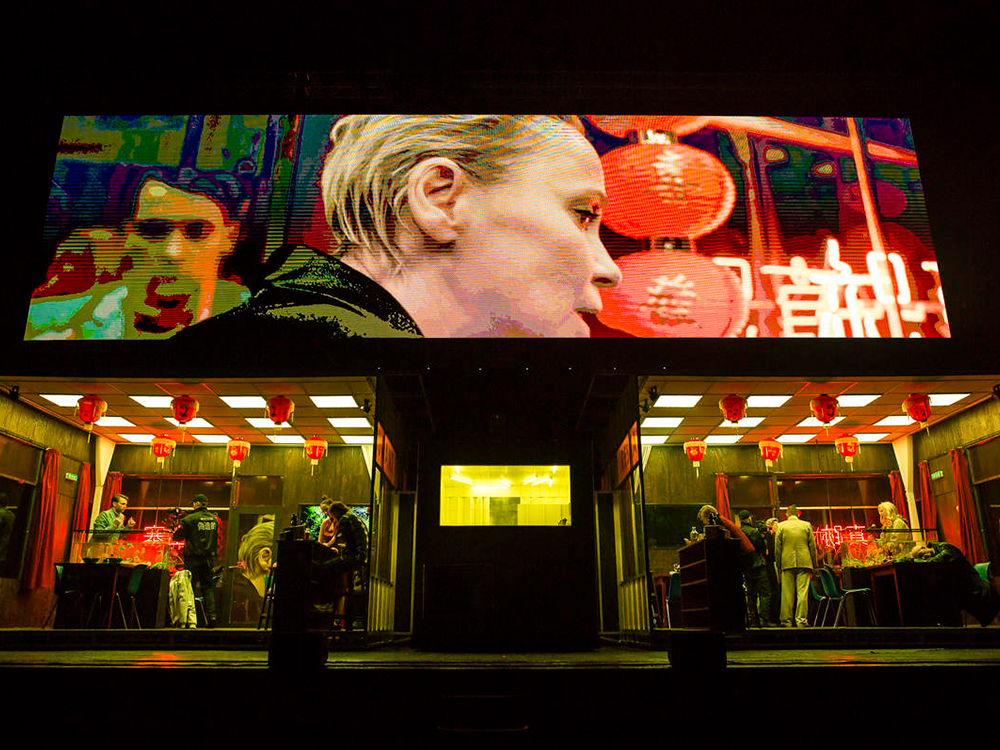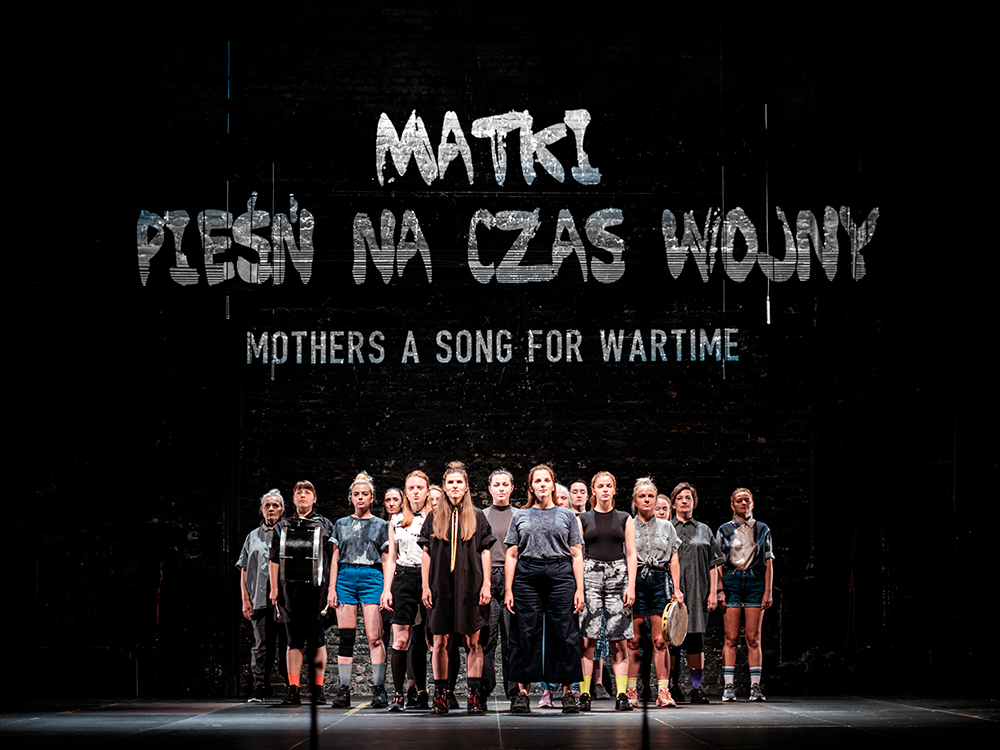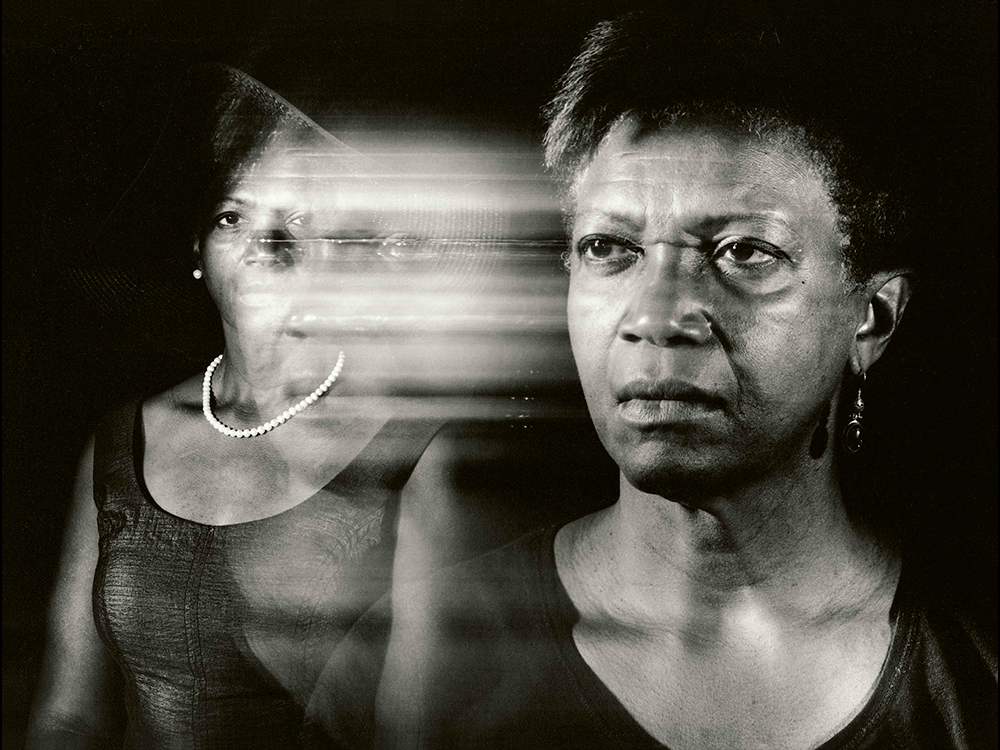The edges of the horizon | 2024/25 season

The edges of the horizon | 2024/25 season
God alone knows all the coincidences of this existence, but we alone must choose our own set of coincidences from all those possible.
Antonio Tabucchi, The edge of the horizon
My only thought is a complicated simplicity. I like a thing simple, but it must be simple through complication.
Gertrude Stein, A transatlantic interview
«All truth is simple» – Is that not doubly a lie?
Friedrich Nietzsche,Twilight of the idols
Referring to the Calvino of the Six Memos for the Next Millennium, and “disguising” his prophecies on the destiny of literary experience as a foretelling of the fate of the performing arts, I believe, for example, that one possibility [...] for the renewal of theatrical language [...] lies in finally also bringing to the stage the challenge that contemporary sciences, with their extraordinary developments, have set for our century’s arts [...] in relation to the strategies to be implemented in order to achieve a representation of the complexity of reality.
Luca Ronconi, Il mio teatro
Genoa, in the Eighties, an Indian summer.
In a fatigued city, lazily looking out to sea and tinted pink by a slow plague that had invaded walls and homes, on the sidelines of an atrocious and bloody crime committed in an old building in Via Casedipinte – a dual fatal shooting – the enquiries of Spino, the coroner of the Old Hospital, unravel (and entangle). Marked implacably by the chimes of the San Donato bell tower, in a whirl of concurrent causes that widen the focus of the investigation from the domain of crime reporting to that of ontology, Spino’s odyssey though lanes and terraces, parishes and workshops, from the Old Port to Staglieno, in search of the elusive identity of Carlo/Carlito Noboldi-Nobodi-Nobody, crumbles into a dust cloud of encounters, a mist of small discoveries that gradually dissolve the arrival at the truth into a theory of points, ever more remote and ever more elusive, a secret line that curves and embraces us from afar, towards the distance, beyond the dark night sea: the edge of the horizon.
In the wake of famous models, from That Awful Mess to The Name of the Rose, Tabucchi, with the striking parable of his Edge of the horizon, transforms the detective story into a scientific-philosophical-theological tractatus, presenting us, in dizzying miniature, with an elegant manifesto on the task of the artist: in the words of Calvino, «since science has begun to distrust general explanations and solutions that are not sectorial and specialised», that of being «capable of weaving together the various branches of knowledge, the various “codes”, into a manifold and multifaceted vision of the world.»
Little more than forty years separate us from the pages of Tabucchi, and faced with the constant and dizzying expansion of the space and time that we inhabit, the proliferation of possibilities that spread before us, the tangle of reason and babble that governs our actions, perhaps that metaphor of the edge of the horizon is no longer enough to express the complexity of our present; perhaps it is necessary to multiply it and weave it into a network of threads, into a mass of horizons.
Thus, the edges of the horizon. This is, evidently, the new frontier – better still, one of the possible new frontiers of contemporary arts – and one that is particularly theatrical.
In fact, for centuries theatre has examined the methods and forms with which to identify and represent, on stage, the chameleonic and proteiform multiplicity of reality; the strategies to adopt in order to open out the restricted space of the stage and to expand the concentrated time of performance in order to etymologically “understand” the tumultuous overflowing of modernity (and its many afters).
From Shakespeare’s system of multiple plots aimed at breaking apart the asphyxial “prison” of pseudo-Aristotelian unity, right through to the epic-scientific research of Brecht, which demonstrated clear roots in Illuminism, without, however, scorning the eccentric paths taken by Brook, with his “magical” ability for extreme conciseness, far removed from all forms of simplification. However, nowadays – in a world that, having overstepped the confines of reality, has definitively invaded the virtual, taking the global village from an witty epistemic metaphor to a concrete and unsettling daily experience, in which the “elsewhere” and the “therefore” or “then” are irremediably interwoven with the “here” and “now”, in which fakes seem to have become the other face of truth and reality is blended with stories, to the point that the mirror of theatre risks being shattered in the collision with the complexity of the present – the need to face the multiplicity, perhaps not consuming it but at least cataloguing it, planning it and examining it, has become ever more pressing.
Thus, continuing the Piccolo Teatro’s examination of possible new forms of theatrical expression that dialogue with the interests of the public and the demands of the artists, the 2024/25 season of the Teatro d’Europa aims to provide a labyrinthine gallery of the multiform horizons of our time, seen from different points of view.
The projection of private lives into the lengthy field of history, or the opening or the autobiography and the “portrait of a family in an interior” to reflect the world. The adoption of the city as a theatre stage, or the overturning of the Anthropocene in an exploration of nature that goes beyond what is human. The return to the classics, to fables, to legends and to the great poems from the infancy of the world as masks of contemporaneity and its countless contradictions. The summarising of memory and its many nooks and crannies as a handbook for the creation of intrepid glimpses of the future, or the use of taxonomy “en quadrille” to highlight the ruthless strategies used to eliminate the weakest.
The list continues: the refraction of the present through the Babel of language or in the grand foundry of rhetoric, with its persuasive force; the painstaking embroidering of romantic maps of the present; the entertaining re-invention of the catastrophe theory strung between anthropology and science fiction and the didactic recording of the various forms of violence with the sole aim of, one day, banishing them from the world. Of fundamental importance, when exploring the generous cornucopia offered by the programme, are the rules of engagement for the audience. Merrily roll the dice, without fear of losing the way (whoever gets to 62, or if you want, 65, moves on to 73; and whoever gets to 24 rolls again; but if you land on 44, and realise it, miss two turns, because a pause is important).
Don’t hold on to one approach or one vision, but rather follow multiple periods, running unrestrained through the web of connections, the counterpoint of voices, the geometry of correspondences. Wander freely from show to show, without fencing yourself in, deciphering relations, exploring constellations, examining puzzles; bring forth images and fantasies by joining the dots like a child...
Claudio Longhi
P.S.
[…] […] Spino is a name that I invented myself and one I have grown fond of. Some may point out that it’s an abbreviation of Spinoza, a philosopher I won’t deny I love; but it signifies other things too, of course. Spinoza, let me say in parenthesis, was a Sephardic Jew, and like many of his people carried the horizon with him in his eyes. The horizon, in fact, is a geometrical location, since it moves as we move. I would very much like to think that by some sorcery my character did manage to reach it, since he too had it in his eyes. (A.T.)







